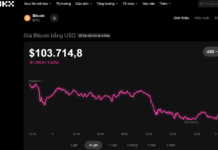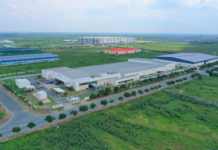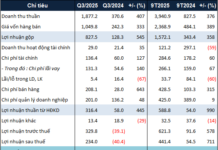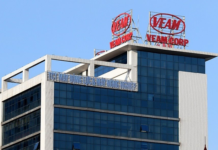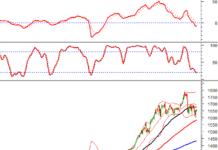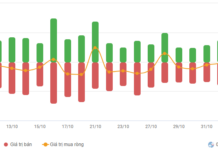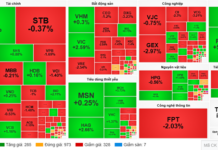The overall demand worldwide in the first quarter of 2024 remained on the uptrend from the final quarter of 2023, according to the General Statistics Office. Domestically, several businesses (enterprises or companies) such as Samsung, Intel, etc., which are leading companies in terms of export activities, have laid out plans that indicate positive growth in their production in 2024. Raw materials such as fuel demonstrate a rebound in production and export activities.
Orders remain scarce, costs rise
Dr. Can Van Luc, chief economist at BIDV and member of the National Monetary and Financial Policy Advisory Council, commented that Vietnamese businesses are now more proactive, versatile and careful in the way they handle export orders, after a challenging period. They are also paying more attention to digital and green transformation to meet the increasingly higher standards of overseas markets, especially in the US and EU. “We have been monitoring and have observed that businesses in many countries, including in Vietnam, have demonstrated strong resilience and adaptability to geopolitical risks in recent times. For example, immediately after the outbreak of conflicts in the Middle East or the Red Sea, countless shipments of goods and services are being routed around the Cape of Good Hope. We’ve seen cargo traffic through Cape of Good Hope double, making up for the decline in goods going through the Red Sea. However, this has brought about rising transportation costs, insurance premiums, and labor costs, while delivery times have also increased 1.5 times compared to the past,” said Mr. Luc.
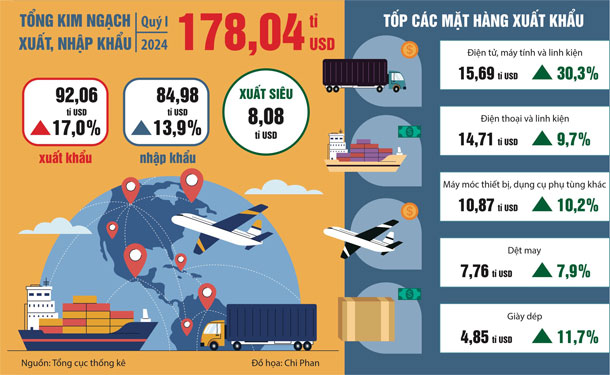

Pre-shipment inspection at the Vinacoco factory, part of G.C Food Joint Stock Company. Photo: AN NA
To effectively respond to the many unforeseen volatilities in the near future, the expert believes that businesses, on the one hand, must continuously adapt; while government agencies, on the other hand, need to provide businesses with updated market information and forecasts to enable them to be more proactive. “Businesses have already been diversifying their markets and partners, but they, including those providing transportation services, should also pay more heed to the storage aspect. They need to secure storage facilities, warehouses, to stockpile and store goods, and thereby taking initiative in their production and business plans. Moreover, there needs to be more proactive support from embassy agencies, overseas Vietnamese trade offices, and industry associations to keep businesses well-informed and help them minimize growing legal and trade protection risks,” said Dr. Luc.
According to Nguyen Phuoc Hung, standing vice chairman of the HCMC Business Association (HUBA), although the exports in the first quarter of 2024 have shown significant improvement over the previous period, there are still several industries and businesses that face order scarcity due to the loss of traditional markets and a tightening of consumer spending. Labor-intensive industries such as footwear, garments and textiles have yet to secure sufficient medium- and long-term orders and thus are unable to stabilize their production and business activities. Amidst the order shortage and fierce price competition, many customers are offering prices of only 50% compared to normal levels; some even offer as low as 40%. To adapt to this, many businesses have taken the initiative to restructure, make savings, cut resources, and reduce spending.
Furthermore, numerous barriers remain in the economic system: administrative reforms failing to meet expectations, coupled with a lack of clarity in certain legal matters… continue to pose as obstacles to the business community.
The seafood industry logged exports of nearly US$2 billion in the first quarter of 2024, an increase of over 8% year-on-year. Notably, recovery has been evident in many markets, especially in the US with a growth rate of 16%. According to Ho Quoc Luc, Chairman of the Board of Directors of Sao Ta Food Joint Stock Company, Vietnamese shrimp is facing an anti-subsidy case in the US market. The US Department of Commerce (DOC) has recently announced a preliminary duty of 2.84% in this case. Although this duty rate is lower than that imposed on shrimp from India and Ecuador, it is still a significant deterrent. “We hope that in the upcoming period, when the DOC reviews the case in Vietnam, this tax rate will be reduced to under 2%, in which case the lawsuit may be dropped,” said Mr. Luc.
The Japanese market is also posing challenges to businesses due to the Doxycycline antibiotic index. This substance is not banned in Vietnam or in many other countries when it comes to aquaculture. However, the maximum residue limit (MRL) allowed in the Japanese market is 10 ppb, while the EU, China, and New Zealand allow up to 100 ppb for this index. Businesses have proposed negotiating with Japan to adjust the Doxycycline MRL to be on par with other markets.
Meanwhile, despite strong growth thanks to the Korea-Vietnam Free Trade Agreement (KVFTA), importers of Vietnamese shrimp in the South Korean market have shown no interest in increasing their purchases due to quotas. South Korea only levies a tax of 0% on the first 15,000 tons of Vietnamese shrimp, while a hefty 20% tax applies to anything over that quota. Therefore, South Korean importers are prioritizing shrimp imports from Peru, which are not subject to quotas.
Obstacles concerning capital
The shortage of capital is a major obstacle for export businesses. Vu Thai Son, Chairman of the Board of Directors of Long Son Joint Stock Company and of the Binh Phuoc Cashew Association, commented that his company is currently borrowing six-month loans in Vietnamese dong with an interest rate of only 4.5%-5%/year, which is the lowest rate he has ever seen in over a decade. “However, only large-scale businesses like Long Son can access such low interest rates, which will not be the case for small- and medium-sized enterprises. We had to undergo M&A (merger and acquisition) to increase our scale and optimize our management. As such, the government needs to create favorable conditions for businesses to scale up, enhancing their resourcefulness, competitiveness, and thereby enabling them to access these low-cost capital sources,” said Mr. Son.
The coffee industry is facing even greater strain on capital. In just six months, the price of raw coffee has more than doubled and is approaching the VND130,000/kg threshold, leaving many businesses strapped for cash to conduct their operations. Recently, the Vietnam Coffee and Cocoa Association (VICOFA) has proposed that banks increase credit limits and prioritize preferential interest rates for businesses involved in coffee exports, right from the beginning of the harvest season, to ensure a stable supply of goods.
Nguyen Duc Hung, Director of Napoli Coffee Import-Export Production Trading Joint Stock Company, stated that the coffee export market is doing well, with more buyers than sellers. However, to maintain profit margins, businesses are compelled to invest in deep coffee processing, as future prices of raw coffee will remain high. “Nonetheless, investment requires capital. For the coffee industry, a shortage of capital spells failure. Businesses with large capital reserves to stock up on goods will make huge profits. Therefore, businesses now are in dire need of preferential capital from banks,” said Mr. Hung.
Regarding the fruits and vegetables sector, Dang Phuc Nguyen, General Secretary of the Vietnam Fruit and Vegetable Association, stated that a lack of capital is also a major concern for businesses. “Last year, dragon fruit exports reached high values but many Vietnamese businesses still suffered losses due to having to purchase raw materials at high prices to fulfill contracts inked at low prices,” explained Mr. Nguyen. This situation arises from the fact that some Chinese traders, who have ample capital and market knowledge, come to Vietnam to buy goods under the guise of having Vietnamese people act as figureheads. Consequently, many Vietnamese businesses cannot directly export their products but can only serve as processors for the Chinese traders and thus their profits are minimal.
The Lao Dong Newspaper organizes the second session of the 2024 Vietnam Economic Forum
In relation to export activities, the Lao Dong Newspaper is organizing the second session of the 2024 Vietnam Economic Forum, themed “Resolving capital and market difficulties for export businesses,”










